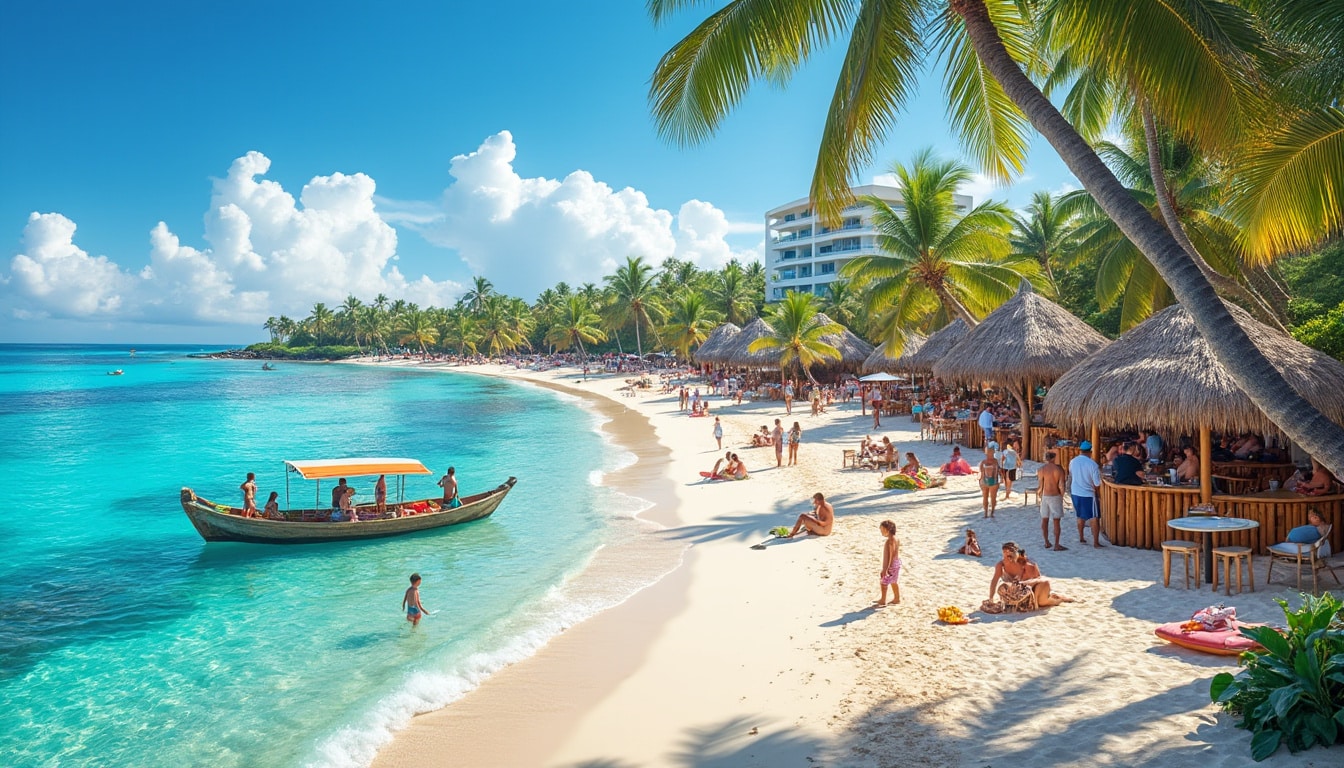Once an obscure, untouched gem, Punta Cana is now a renowned tropical paradise nestled in the eastern part of the Dominican Republic. This transformation from a dense jungle to a world-renowned tourist destination is a captivating story of vision, investment, and development. Punta Cana’s metamorphosis is not only a testament to strategic planning but also a beacon of how nature’s beauty can be harnessed for sustainable growth and prosperity. This is a place where the whispers of history echo along the sands, intertwining the vibrant stories of the past with the sun-kissed bliss of the present.
The Early History of Punta Cana: From Jungle to Gems
The history of Punta Cana begins in the dense, untamed jungles that blanketed the Dominican Republic’s eastern coastline. This area, once known as ‘Punta Borrachon’ — or ‘Drunken Point’ — was a landscape replete with lush vegetation, rich wildlife, and a series of quaint little fishing villages scattered along its shores. A place where the towering coconut palms stood guard over pristine white sands that stretched along the coastline into azure waters teeming with vibrant coral reefs.
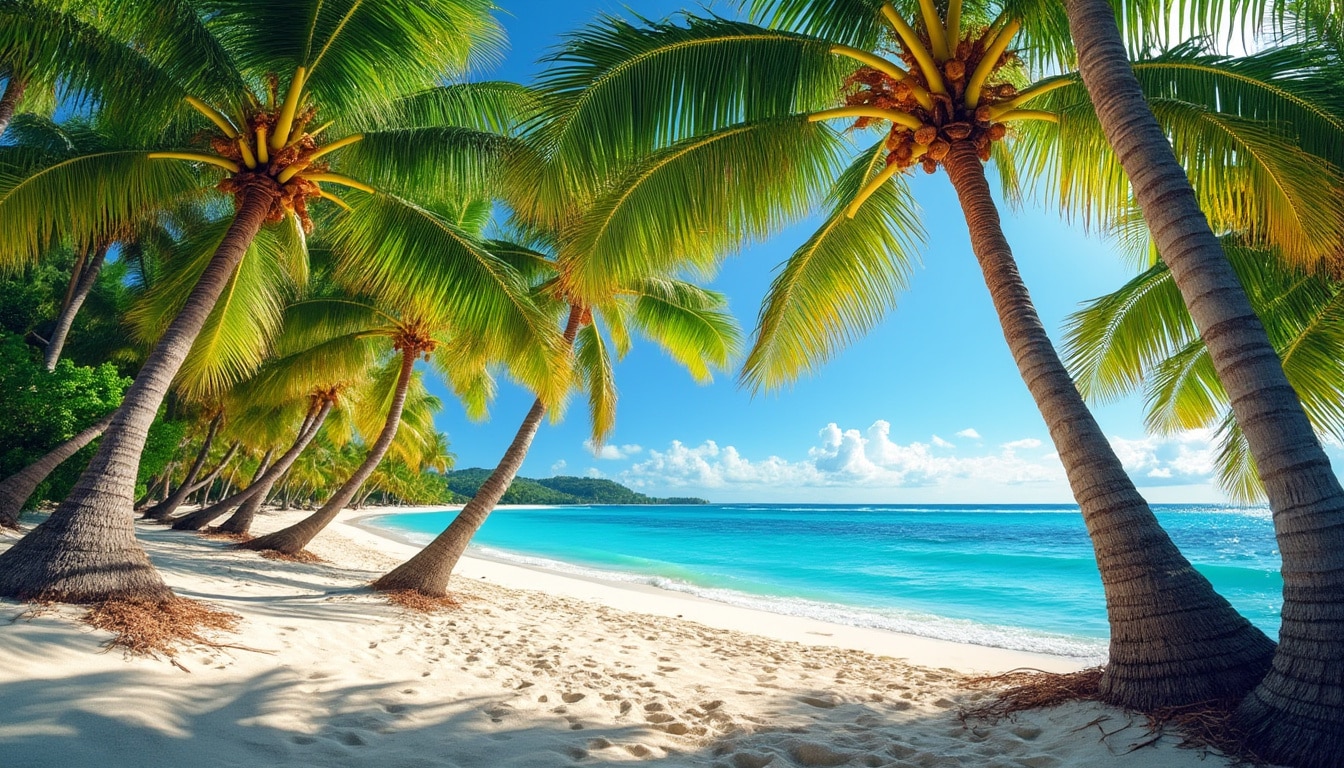
It wasn’t until 1969 that the region’s potential began to be recognized on a global scale. A group of visionary American investors purchased 30 square miles — equivalent to 77 km² — of this undeveloped land. They saw beyond the thick, forbidding jungle, identifying the opportunity for a world-class beach destination. This land purchase marked the beginning of an expansive journey of growth and development into what we now recognize as Punta Cana.
Eager to tap into the potential of this untouched paradise, the investors renamed the land ‘Punta Cana’, a title inspired by the local Punta Cana Club, which played a foundational role in the area’s new identity. Their vision saw the transformation of the land from a remote jungle to a burgeoning tourist haven, starting with the construction of the first hotel in 1971. Despite limited access — reliant on a basic dirt airstrip for small planes — this marked the inception of tourism in Punta Cana.
However, it was not until the late 1970s that the tourism industry in Punta Cana truly began to flourish. In 1978, Club Med, a French resort chain, introduced a new level of luxury and accessibility to the area by constructing a 350-room resort. As the spotlight shone brighter on Punta Cana, the proverbial ‘diamond in the rough’ was being polished to perfection.
This evolution wasn’t just about creating destination resorts; it was about building a community and infrastructure capable of supporting an international tourist market. With the help of international brands like Club Med and local visionaries, Punta Cana’s landscape began to change, paving roads and cutting through jungles to form a welcoming environment capable of accommodating tourists from around the globe.
| Year | Milestone | Impact |
|---|---|---|
| 1969 | Land Acquisition | Marked the start of tourism in Punta Cana |
| 1971 | First Hotel Built | Established Punta Cana as a tourist destination |
| 1978 | Club Med Resort | Began luxury tourism in the area |
Thus, the early history of Punta Cana is a tale of transformation — a shift from hidden jungle secrets to golden sands now trodden by illustrious travelers from all over the world. This era paved the way for Punta Cana’s eventual cultural and economic significance, stitching together an intricate tapestry of the past that continues to evolve.
Infrastructure and Development Boom in Punta Cana
The journey towards transforming Punta Cana into a global tourist hub was marked by groundbreaking developments and effective infrastructure planning. The initial steps involved improving accessibility to the region. The establishment of the Punta Cana International Airport in 1984 was a pivotal turning point. This strategic installation allowed for larger flights from around the world, reducing travel time significantly and effectively opening the floodgates to international tourism.
Transportation infrastructure also received a significant boost. The introduction of new roadways, such as the Coral Highway in 2012, further integrated Punta Cana into the broader Dominican transport network. This development cut down travel time from six hours to just thirty minutes from nearby urban centers like Higüey, demonstrating the strategic planning behind tourism infrastructure designed to support a growing visitor population.
Investment in local infrastructure wasn’t just focused on transport; the services sector saw prolific growth, too. Hotels began sprouting across the coastline, each more luxurious than the last, such as the Barceló complex and the extravagant Hard Rock Hotel, alongside renowned establishments like Iberostar, Riu Hotels, and Melia. These resorts are not only symbols of leisure but also play a pivotal role in the local economy, providing jobs and encouraging economic growth.
- 🌍 Improved accessibility through Punta Cana International Airport
- 🛣️ Roadway expansions reduced travel time significantly
- 🏨 Development of luxury hotels and resorts enhanced tourist attraction
The evolution of infrastructure has not only been about accommodation but also about creating a holistic experience for visitors. This includes the development of high-end shopping experiences, for which visitors can learn more about Punta Cana souvenirs and shopping, top-notch dining options covered in what to eat in Punta Cana, and numerous entertainment venues that cater to a diverse international crowd. Such developments have turned Punta Cana into a self-sustaining ecosystem of tourism, firmly planting it as an indispensable part of the Dominican Republic’s GDP, contributing up to 25% according to current estimates.
The infrastructure boom can be seen as a dual-edged sword; while it has undoubtedly led to economic prosperity, the challenge remains in ensuring sustainable development that honors the natural beauty and rich cultural heritage of Punta Cana. The architecturally innovative designs aim to marry comfort with ecological consciousness, exploring sustainability practices amidst booming structural developments.
The infrastructure and development boom in Punta Cana serves as a chapter filled with strategic growth models and modern-day utilities that have propelled it onto the global tourism map. Analyzing this journey offers invaluable insights into how calculated development can harness natural beauty to foster economic prosperity without losing sight of sustainability.
Tourism’s Cultural Impacts on Punta Cana
The evolution of Punta Cana from obscurity to a thriving tourist hub has yielded profound cultural transitions. Its rapid development has turned it into a melting pot where diverse cultures intersect, leaving an indelible mark on the local heritage and lifestyle.
Punta Cana’s cultural landscape is enriched by the myriad of influences brought by visitors, investors, and expatriates over the years. The influx of tourists from all corners of the globe has inspired a cosmopolitan flair in the region’s cultural offerings. You can explore more about the cultural amalgamation in languages spoken in Punta Cana, which shows how diverse interactions contribute to linguistic evolution.
Local cuisine, too, has undergone significant transformations, with international dishes finding a place alongside traditional Dominican meals. This rich culinary tapestry is beautifully highlighted in articles discussing what to eat in Punta Cana, showing how dining has become an experience unto itself, offering a taste of global richness infused with local flavors.
Moreover, the cultural impacts are vividly showcased in the vibrant arts and music scenes that have developed in response to tourism. Various festivals and events celebrate this fusion of global influences with local traditions, creating a unique cultural fabric that captivates tourists and residents alike.
- 🎭 Festivals blending global and local traditions
- 🍽️ Fusion of international and local cuisine
- 🎶 Music and arts influenced by global tourism
Tourism has also brought about significant socio-economic changes, including improvements in lifestyle and access to services. With numerous job opportunities emerging from resorts like Secrets Resorts, Royalton, and Dreams Resorts, a substantial portion of the local population has benefited economically. The influx of financial resources has enabled developments in public medicine, education, and infrastructure, indirectly enhancing quality of life. As outlined in multiple fun facts about Punta Cana, these changes significantly contribute to the community’s overall development.
| Aspect | Change | Impact |
|---|---|---|
| Language | Multilingual interaction | Enrichment of local dialect |
| Cuisine | Integration of global flavors | Diverse dining experiences |
| Economy | Increased job opportunities | Improved quality of life |
Overall, the cultural impacts of tourism on Punta Cana comprise a complex dance between preserving traditional values and embracing new influences. This confluence of cultures and their consequent impacts underscore the dance of globalization that characterizes modern-day Punta Cana.
Environmental Challenges and Conservation Efforts in Punta Cana
As Punta Cana’s tourism industry continues to flourish, it brings with it challenges concerning environmental sustainability. The natural beauty that once attracted investors and tourists alike now faces the threat of overdevelopment. Thus, balancing growth with ecological conservation has become a pivotal focus.
Resorts and hotels are increasingly recognizing the importance of sustainable practices. Eco-friendly initiatives implemented by establishments such as Zoetry and other high-end resorts aim to mitigate environmental impact through innovative solutions such as wastewater management systems, solar energy, and environmentally-conscious architecture.
- ♻️ Eco-friendly resort initiatives
- 🌱 Wastewater management and solar energy
- 🏡 Community-based conservation programs
Local efforts also spotlight community-led conservation programs aimed at preserving the region’s unique biodiversity and natural beauty. These initiatives are gaining traction as public awareness about the importance of environmental protection grows. You can explore how Punta Cana’s demographics and geography affect these efforts in more depth.
Education campaigns aimed at both residents and tourists focus on sustainable practices to maintain the ecosystem’s equilibrium. These initiatives range from promoting the reduction of single-use plastics to initiatives like beach cleanup drives, highlighting the cooperative efforts between local communities and visitors.
The delicate ecosystem of Punta Cana is an essential part of its allure. Coral reefs, rich marine life, and lush flora compose a biologically vibrant tapestry that must be maintained. This challenge is discussed extensively in articles focusing on Punta Cana’s architecture and urban planning, which explore how eco-friendly designs are being integrated into urban expansion plans.
| Strategy | Focus | Outcome |
|---|---|---|
| Eco-friendly Resorts | Waste reduction and energy efficiency | Minimized impact on nature |
| Community Engagement | Conservation awareness | Sustainable tourism culture |
| Educational Campaigns | Ecosystem preservation | Long-term environmental balance |
Sustainable practices are not merely a choice for the future of Punta Cana but a necessity to ensure that future generations continue to enjoy its unparalleled natural beauty. The balancing act between conservation and development remains a crucial narrative in understanding the evolving landscape of Punta Cana.
From a Hidden Gem to a Premier Tourist Destination: The Pinnacle of Punta Cana
As of 2025, Punta Cana stands as a testament to the possibilities unlocked by strategic vision and development. This once remote and obscure corner of the Dominican Republic now commands global attention as one of the foremost vacation destinations in the world, intertwining luxury, culture, and natural beauty.
The robust collaboration of international hotel chains like Riu Hotels and the Club Med visionaries with local developers showcases a model of successful tourism expansion. Punta Cana has effectively woven a tapestry of luxury and cultural authenticity, where guests can indulge in the best of leisure while embracing the vibrant charm of Dominican culture.
A visitor’s itinerary might include sipping a refreshing cocktail at Iberostar’s beachfront while indulging in the gastronomic delights of local Dominican cuisines, thoroughly explored in famous foods of Punta Cana. Such experiences characteristically illustrate how Punta Cana seamlessly blends leisure with a rich cultural experience.
- 🏖️ Luxurious beachfront resorts
- 🍹 Signature Dominican cocktail experiences
- 🍽️ Exquisite blend of global and local cuisines
Today, the landscape of Punta Cana is adorned with over 60 luxurious resorts sprawled along 30 miles of breathtaking beaches, offering unparalleled views and experiences. From active adventures like diving and snorkeling to laid-back beachside relaxation, Punta Cana’s allure lies in its versatile offerings suited to every type of traveler.
More than just a simple tourist destination, Punta Cana represents a microcosm of the Dominican Republic’s potential to integrate growth with preservation. Its success story is not merely about economic gain but also about presenting a framework that other burgeoning tourist destinations might emulate, focusing on cultural authenticity and environmental sustainability.
Punta Cana’s evolution from a hidden gem to a premier tourist destination is itself an awe-inspiring journey. As guests from around the world continue to arrive, Punta Cana remains dedicated to offering an unmatched tropical experience while consciously nurturing the environment and culture that make it truly special.
FAQ
- What is the best time to visit Punta Cana? 🌞
The best time to visit Punta Cana is between December and April when the climate is ideal for beach activities.
- How has tourism impacted the local economy? 💼
Tourism has significantly boosted the local economy, providing numerous job opportunities and contributing to about 25% of the Dominican Republic’s GDP.
- Are there eco-friendly initiatives in Punta Cana? 🌿
Yes, many resorts have adopted eco-friendly practices, focusing on waste reduction, energy efficiency, and supporting conservation programs.
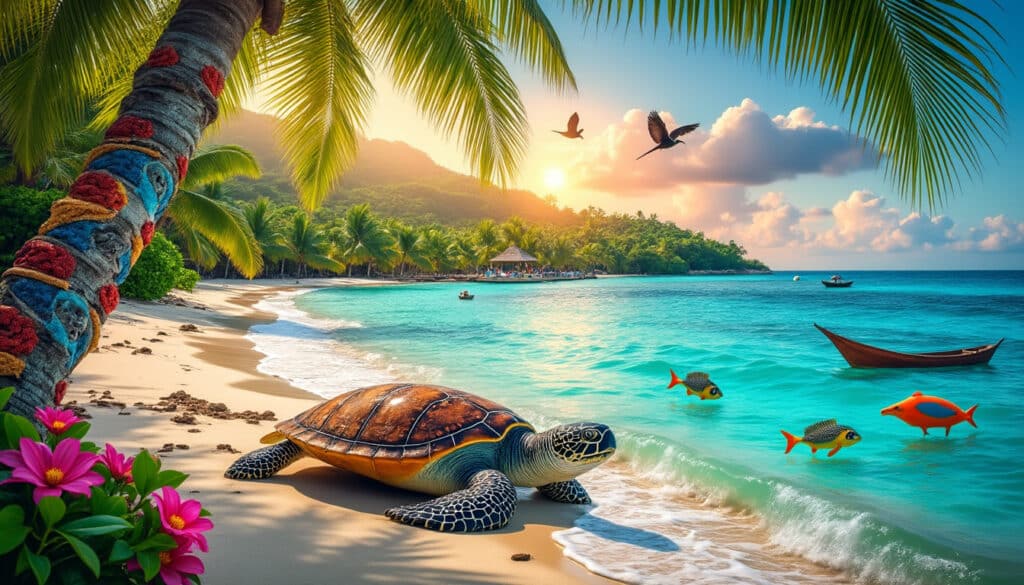
Fun Facts & Curiosities About Punta Cana
If you’re seeking a breathtaking escape to paradise, look no further than Punta Cana. Nestled on the eastern coast of the Dominican Republic, this vibrant destination boasts an impressive array of dazzling beaches, rich history, and vibrant culture. Here, visitors…
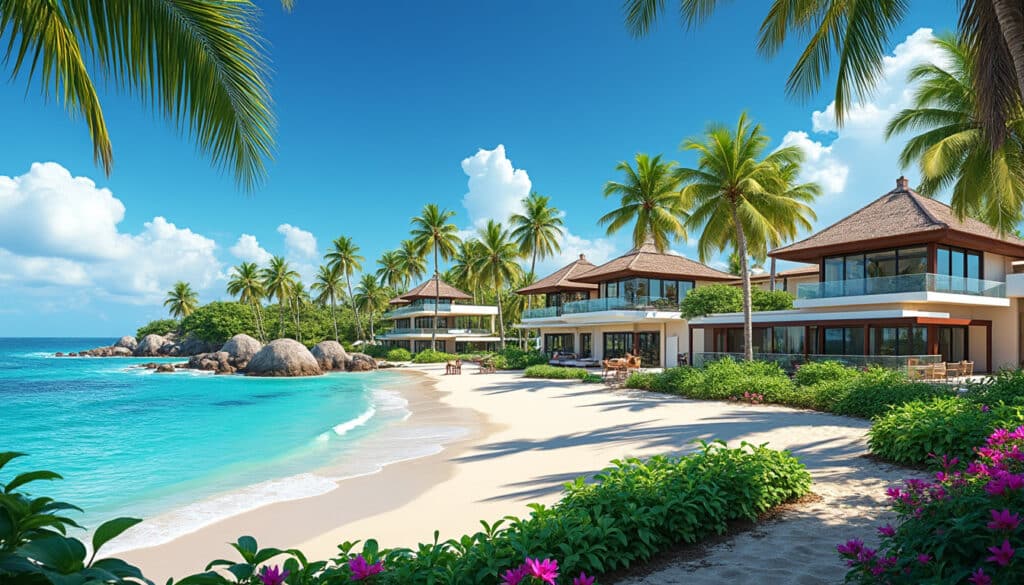
Architecture and urban features of Punta Cana
Punta Cana, a region celebrated for its sun-kissed beaches and clear azure waters, is not merely a paradise for beachgoers—it is a symphony of architectural splendor and urban allure. This Dominican wonderland melds traditional influences with cutting-edge design, offering a…

Living in Punta Cana in 2025 provides a unique blend of paradise vibes and modern lifestyle. From its mesmerizing beaches to a thriving expat community, this Dominican haven offers a lifestyle suitable for those seeking both tranquility and activity. The…
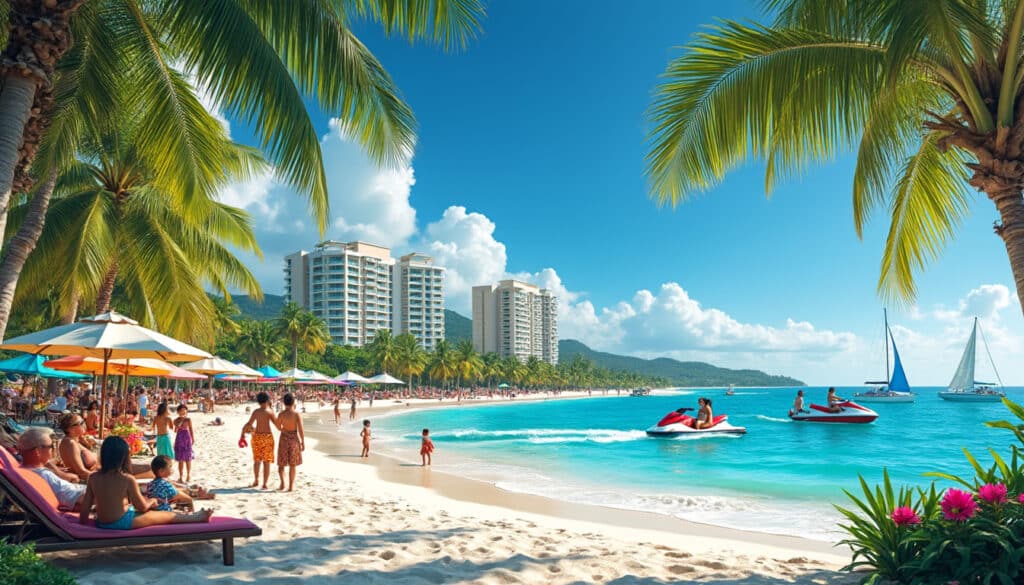
Demographics and geography of Punta Cana
In the heart of the Caribbean, Punta Cana shines as a beacon of sun-kissed beaches and azure oceans. This region, nestled on the eastern edge of the Dominican Republic, serves as a haven for tourists seeking the idyllic tropical escape.…
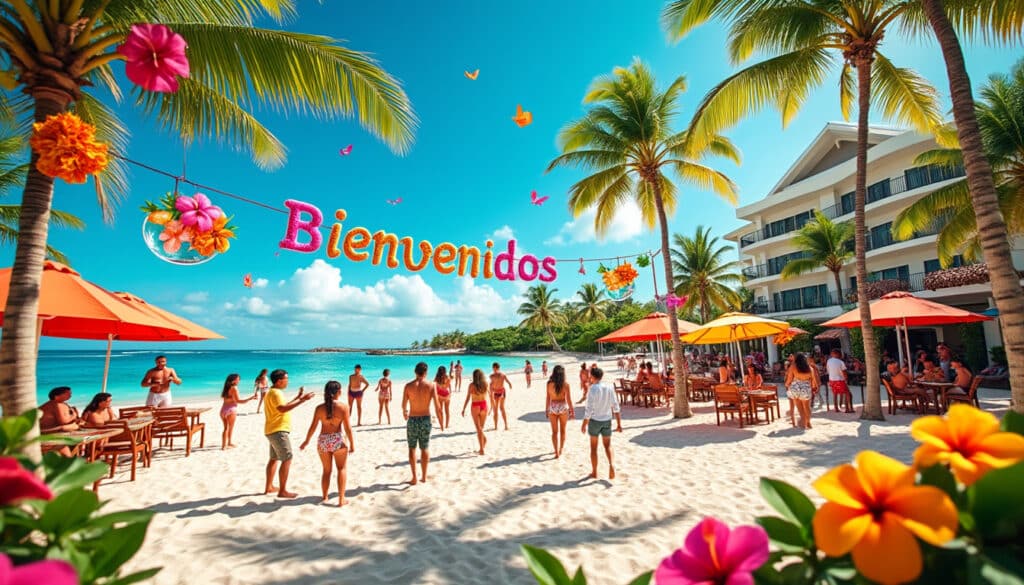
Holidays and celebrations in Punta Cana
In the heart of the Caribbean lies a tropical paradise rich in culture and bursting with vibrant celebrations. Punta Cana, a dazzling gem on the eastern edge of the Dominican Republic, offers more than just sun, sea, and sand. It…
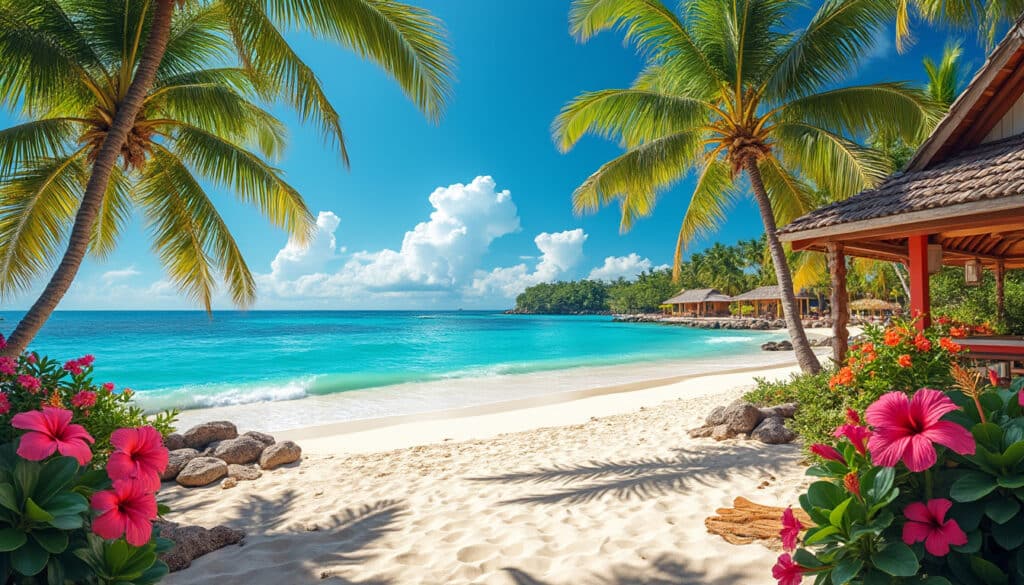
Language and spelling of Punta Cana
Surrounded by azure waters and sunlit beaches, Punta Cana stands as a cornerstone of cultural exchange and tourism in the Caribbean. The linguistic tapestry of this paradise is as vibrant and varied as its natural beauty. With Spanish reigning as…
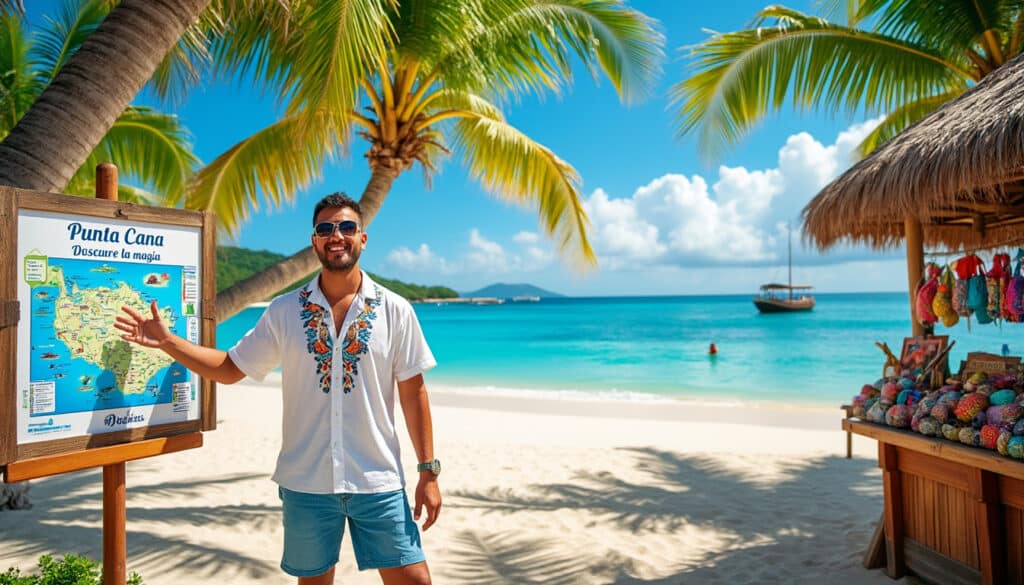
Local tips for tourists in Punta Cana
Visiting Punta Cana promises lush beaches, vibrant culture, and endless exploration opportunities. Yet, maximizing your experience goes beyond merely reaching your destination. To truly immerse in what this Caribbean paradise has to offer, proper preparation, understanding of local etiquettes, and…

Names, flags, and identity of Punta Cana
Unveiling the mesmerizing allure of Punta Cana, this article delves into the intricate layers of its identity, from its evocative name to the vibrant symbols that capture its essence. As the easternmost paradise of the Dominican Republic, Punta Cana resonates…

Reputation and identity of Punta Cana
The splendid strip of heaven known as Punta Cana has etched its identity on the global map through its stunning beaches, vibrant culture, and distinctive charm. Nestled in the Dominican Republic, it stands not just as a tourist destination but…
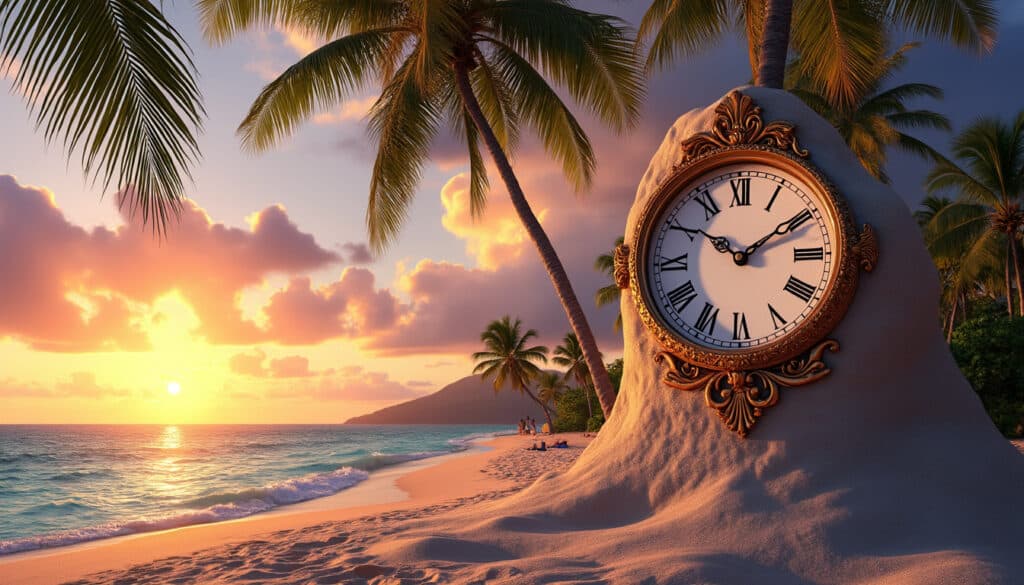
Time and time zone in Punta Cana
Punta Cana, one of the most alluring travel destinations in the Dominican Republic, is known for its pristine beaches, vibrant culture, and dynamic energy. However, understanding its time zone and how it affects daily life there is crucial for any…

Unusual facts and social issues in Punta Cana
As one of the Caribbean’s premier destinations, Punta Cana is often seen as synonymous with paradise. Its sun-drenched beaches and luxurious resorts promise a getaway of dreams. Yet beneath this tropical veneer lie unusual facts and social issues that many…
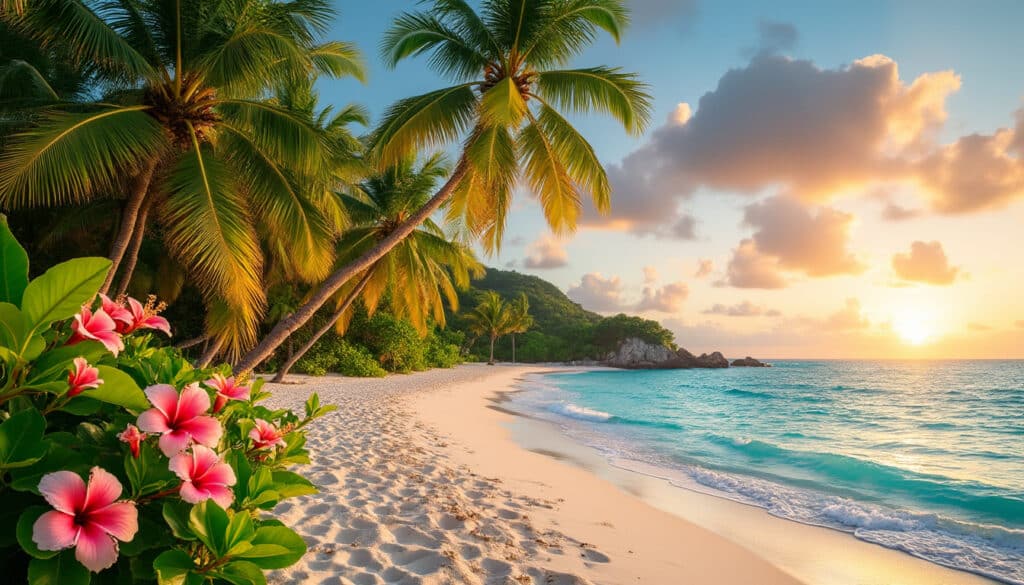
What does Punta Cana look, smell, feel like?
Immerse yourself in the sensory tapestry of Punta Cana, where every moment is a vivid experience. This popular Caribbean destination promises not only relaxing beaches and luxury resorts but also a vibrant atmosphere that tantalizes the senses. From the lush…

